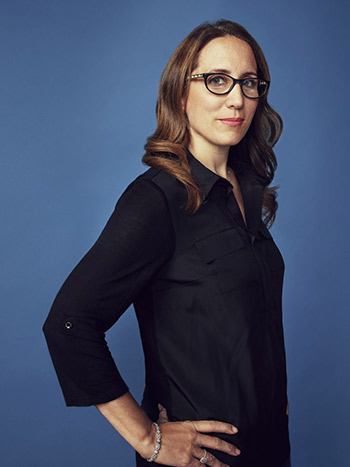By Rose Ors
November 2018
BERKELEY, Calif. — Those who learn, lead. I not only like the sound of this phrase, I think it’s true. And it was also the predominant theme at the recent UC Berkeley General Counsel Institute, which shone a light on how in-house lawyers are learning to lead.
The Institute, co-sponsored by the Berkeley Center for Law and Business and PEER 150, was an immersive two-day program of lectures and workshops, each session taught by a UC Berkeley professor or legal department chief legal officer, or general counsel. The sessions ranged from hot-button topics — blockchain, unconscious bias, AI, the government regulatory landscape, and the evolution of corporate responsibility — to the science of negotiations and the importance of soft skills.

Louise Pentland, EVP, Chief Business Affairs and Legal Officer at PayPal
Then there were the lectures from three of the most respected legal department chiefs in Silicon Valley — Mark Chandler of Cisco, Louise Pentland of PayPal, and Dorian Daley of Oracle. Their sessions differed in emphasis, but together, they formed a primer for those lawyers aspiring to become CLOs or reach other leadership roles. Here are three key takeaways on how to prepare to lead like the best:
1. Know the Numbers
The CLO is not only the go-to legal brain trust of the CEO and the board of directors, but she is also their strategic business partner. The latter role requires a deep understanding of the company’s business and a tolerance for calculated risk-taking. To succeed, the CLO must possess the mindset of a business executive with a legal degree.
- Advice to future CLOs: If you are one of the many lawyers afraid of numbers, tackle the fear by deciding that, as a first step, you will learn what are the key measures of your company’s financial performance. You do not need to be an accountant or financial analyst; but you do need to understand the numbers that matter. It’s part of having a seat at the executive table.
2. Know the Why
The CLO creates the culture of the legal department. A foundational question in this ongoing process is to ask and answer the “why” question: “Why does the legal department exist?” Today, most legal departments have, as a stated purpose, the task of adding measurable value to the enterprise. Chandler noted that Cisco’s legal department mantra is illustrative of his point: “[The legal department at Cisco] exists to make sure that in a legally appropriate way, we deliver value to our clients.”

Mark Chandler, Cisco GC
- Advice to future CLOs: There are many factors to the value proposition. In today’s doing more with less mindset, a critical factor in the value proposition is to run the department in an effective and efficient way. This requires rethinking how the department employs people, processes, and technology to achieve operational excellence. Take note of what is happening in this area within your legal department. Even more fruitful, step back from what you do and see how it can be done better.
3. Know the People
The CLO has the responsibility to answer the why of her department. She is also the captain of that journey. But little progress will be made without the full commitment of the people on the team. As Oracle’s Daley underscored in her comments, it’s the people part that the CLO needs to understand, know, and care about.
- Advice to future CLOs: In the everyday demands of work, we can forget (and often do) that the lawyer, project manager, or salesperson we work with is also a human being who has professional and personal aspirations and dreams, has a family or not, has hobbies and interests. A way to find out about the person behind the title is to remember to ask the people you work with open-ended questions that invite them to share something about their selves. For some, asking questions may come naturally, others may need to practice; but either way, look up, get out from behind your desk, and get to know the people who are your colleagues, clients, and collaborators.
A Final Note
What is missing from these three takeaways is perhaps the most fundamental factor in being a great leader — who you are as a person. Sitting in the audience at each of their lectures, it was clear to me that Daley, Chandler, and Pentland are human beings with a strong moral compass, an insatiable desire to learn, an arms-full capacity for compassion, and an unceasing drive to excel.
You had to be there to feel it, and those who attended did, and they walked away understanding why these three legal chiefs are icons within the legal industry. It is because of who they are that makes them the kind of people you want to follow.
See more photos from the program.
Back to Berkeley Boosts.